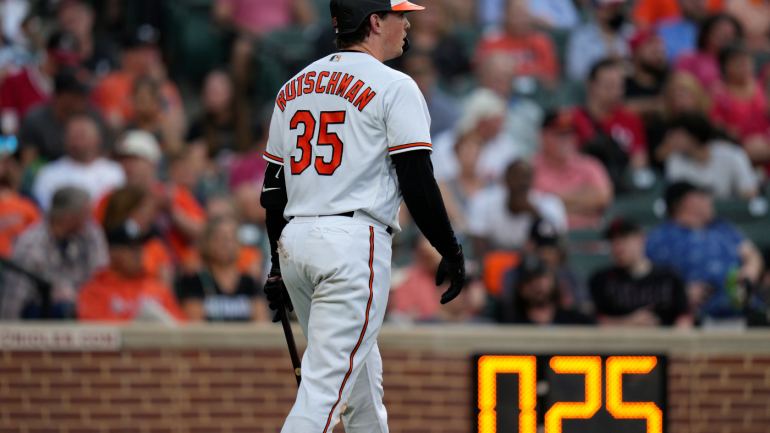
The MLB Players Association would like to add "a few extra seconds" to the pitch clock during the postseason, Tony Clark, the head of the union, told reporters (including Pete Abraham of the Boston Globe) ahead of Tuesday's All-Star Game. That way, Clark reasoned, games are less likely to be decided or impacted by pitch clock violations.
MLB commissioner Rob Manfred, for his part, didn't seem on board with the idea of adding time. He told reporters Tuesday that he would like to see the game played the same in the postseason as it is in the regular season, with few exceptions. (The automatic runner at second to begin extra innings being the biggest difference.) This season is, of course, the first in which MLB has used a pitch clock at the game's highest level.
For those who haven't followed along or been exposed to the pitch clock yet, pitchers are afforded 15 seconds between pitches when no one is on base and 20 seconds between pitches when someone has reached. Batters must be in the box and ready to receive a pitch with at least eight seconds to go. The clock stops once a pitcher begins their delivery. Violations result in either an automatic ball (if the pitcher is at fault) or an automatic strike (if the batter is to blame).
The intent behind installing the pitch clock was to improve the pace of play as well as shorten the length of games. It certainly has accomplished the latter. Games are averaging two hours and 37 minutes this season, according to Baseball Reference. That's nearly 30 minutes quicker than last season. It's also the shortest average game length since prior to the last round of expansion in 1998.
As far as violations go, the Seattle Mariners (31) lead all teams with respect to pitchers. The Miami Marlins, meanwhile, lead all teams with 13 batter violations. Every team has committed at least 11 total violations.


















